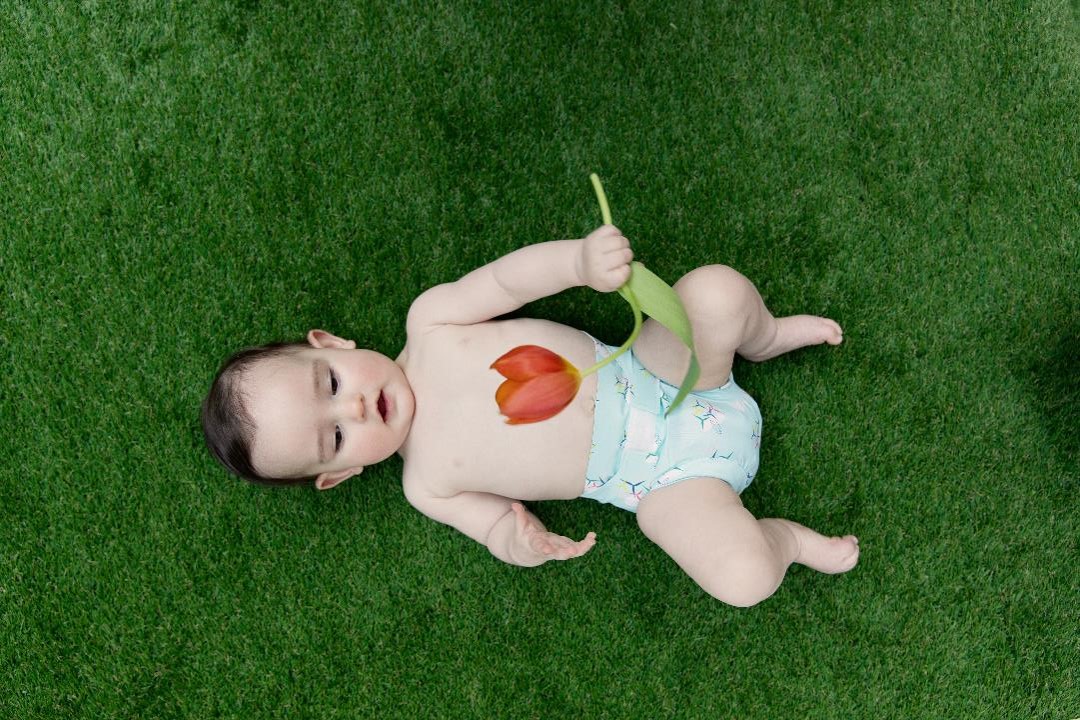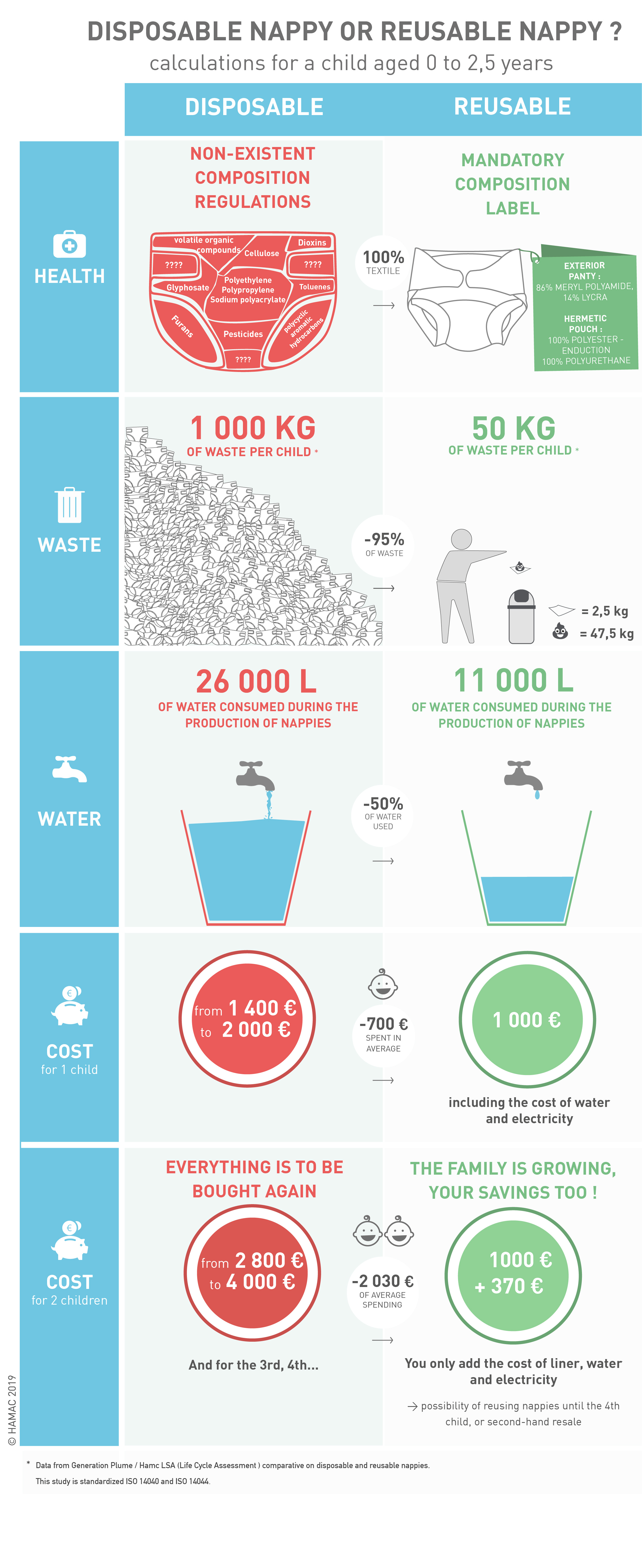Rejoignez-nous
Vous êtes un nouveau client ? Inscrivez-vous à la newsletter et profitez de 5% de remise sur votre première commande.
(Une newsletter par mois, pas plus !)
Eco-friendly reusable nappies
A baby weighs an average of 3kg at birth but produces almost a ton of waste before they're fully potty trained! How is that even possible?
A few figures to mull over
You're going to change your little one around 5000 times before they start going to the loo on their own... not forgetting the wipes, tissues, cotton wool and more that go in the bin, are taken to the waste treatment centre, processed, incinerated or buried.
ADEME (French Environmental Agency) conducted a study that found that disposable nappies account for 6% of total household waste tonnage in France, the second biggest source of waste after bottles. Here's a figure that will play on your mind... Disposable nappies account for an average of 40% of waste in a household with a 0-2 year old. Disposable nappies are toxic to the environment and biodiversity as they are buried (water and soil pollution) or incinerated (air and soil pollution among others).
Facts for sceptics
To get a real sense of what a difference a Hamac reusable nappy can make, we conducted a Life Cycle Assessment (ISO 14040 and 14044 certified) comparing reusable and disposable nappies. The results speak for themselves:
• 50% less water consumption
• 93% less greenhouse gas emissions
• 80% less electricity consumption
• 90% less wood consumption
• 90% less depletion of non-renewable resources
Using reusable nappies is an all-round way to protect the environment: no toxins derived from petrochemicals, almost no waste (a disposable liner compared to a bulky nappy every time you change baby), far lighter bins which means improved waste management, less air pollution caused by incinerating nappies or a drop in soil pollution caused by burying etc. Using reusable nappies puts a whole new spin on managing waste and protecting the environment!
An anti-waste range
Hamac's conception is based on a simple fact: baby's arrival creates lots of waste on every front. Our range features a variety of products that help significantly reduce textile waste: classic and T.MAC reusable nappies, inserts, liners (forget about paper towels and disposable wipes), breast pads, swim nappies etc.
Making your bin lighter is child's play. Everything you do counts, even the reusable cotton wool you use every morning to wash baby's face... and mum and dad!

